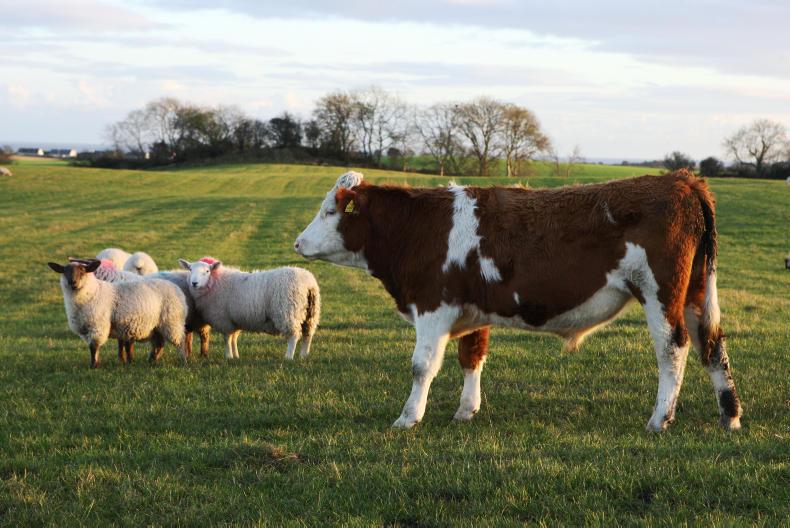Some commentators have argued that the relatively small amount of methane in the atmosphere has no impact, because it is drowned out by more common gases with overlapping effects – especially naturally occurring water vapour.
This is the view promoted by the sceptic group Irish Climate Science Forum, which has invited speakers including retired MIT meteorologist Richard Lindzen and retired Princeton University physicist William Happer from the US, and University of York physicist William Wijngaarden from Canada to defend it. In New Zealand, US engineer Thomas Sheahen and retired sheep researcher Jock Allison recently argued in the Journal of the NZ Institute of Primary Industry Management that methane is an “ineffective greenhouse gas”.
Farmers, however, cannot currently pin hope on this argument to exonerate burping cattle and sheep. The research pointing to a “negligible” or “irrelevant” warming effect of methane has not been published or referenced in the peer-reviewed scientific journals reviewed by the Irish Farmers Journal.
Many authors above are not currently conducting research for universities; instead, they have affiliations with political opposition to climate policy. Happer is US president Donald Trump’s science adviser. Lindzen works for the Cato Institute and Sheahen for the Heartland Institute, both US organisations defining themselves as “free-market think-tanks” advocating for “limited government”.
Widely published University of Reading climatologist Keith Shine told the Irish Farmers Journal he was not aware of any scientific findings negating methane’s role in climate change. His research considers “well-mixed gases” and accounts for overlaps between them.
“You wouldn’t try to do a calculation of greenhouse gas effect without including water vapour,” Shine said. “If there was no water vapour, methane’s greenhouse gas effect would be many times stronger.” He added that such overlaps have been included in his research since the 1990s and other scientists’ since the 1970s. “If someone was going around claiming we haven’t taken this into account, they wouldn’t be correct,” he said.
Read more
Environment: what we know about methane
Some commentators have argued that the relatively small amount of methane in the atmosphere has no impact, because it is drowned out by more common gases with overlapping effects – especially naturally occurring water vapour.
This is the view promoted by the sceptic group Irish Climate Science Forum, which has invited speakers including retired MIT meteorologist Richard Lindzen and retired Princeton University physicist William Happer from the US, and University of York physicist William Wijngaarden from Canada to defend it. In New Zealand, US engineer Thomas Sheahen and retired sheep researcher Jock Allison recently argued in the Journal of the NZ Institute of Primary Industry Management that methane is an “ineffective greenhouse gas”.
Farmers, however, cannot currently pin hope on this argument to exonerate burping cattle and sheep. The research pointing to a “negligible” or “irrelevant” warming effect of methane has not been published or referenced in the peer-reviewed scientific journals reviewed by the Irish Farmers Journal.
Many authors above are not currently conducting research for universities; instead, they have affiliations with political opposition to climate policy. Happer is US president Donald Trump’s science adviser. Lindzen works for the Cato Institute and Sheahen for the Heartland Institute, both US organisations defining themselves as “free-market think-tanks” advocating for “limited government”.
Widely published University of Reading climatologist Keith Shine told the Irish Farmers Journal he was not aware of any scientific findings negating methane’s role in climate change. His research considers “well-mixed gases” and accounts for overlaps between them.
“You wouldn’t try to do a calculation of greenhouse gas effect without including water vapour,” Shine said. “If there was no water vapour, methane’s greenhouse gas effect would be many times stronger.” He added that such overlaps have been included in his research since the 1990s and other scientists’ since the 1970s. “If someone was going around claiming we haven’t taken this into account, they wouldn’t be correct,” he said.
Read more
Environment: what we know about methane






 This is a subscriber-only article
This is a subscriber-only article










SHARING OPTIONS: